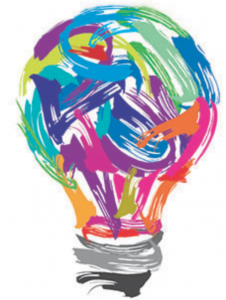Years on the defensive, it’s time to get creative!

It seems to me that our growth as a profession in education has been “delayed”, stunted, if you will. We’ve spent the last 10 years or so on the defensive, trying with everything we had, to deal forthrightly with the bureaucrats and idiots who have controlled education policy. With the passage of ESSA (Every Student Succeeds Act) (I really hate what politicians do to sully the language), we now have the opportunity to get back to creating a useful educational experience and infrastructure. Hence this post.
For educators, a funny thing happened on our way to the 21 century — the profession was duped, swindled, defrauded, and hoodwinked by an onslaught of money-hungry grubbers not at all interested in learning. As an older adult, having witnessed these shenanigans, I fondly recall one Jon Saphier who wrote scholarly, hopeful, and penetrating pieces important to our daily work and our profession before the vicious onslaught against educators. I post here a short summary of one of Dr. Saphier’s important papers.
Below is the ERIC summary of his important and perceptive paper and included a link to the complete work, Bonfires and Magic Bullets. And I’ve also included a link to one of my all-time favorite articles as food for thought, “Good Seeds Grow Strong Cultures“. You’ll find several useful themes throughout — the importance of thoughtful perseverance, the necessity of continued learning, the indispensability of professional conversations and coaching, and the focus on constant development of highly skilled educators. In particular, taking steps to develop an authentic profession is seen as the principal key to success of so many of our diverse attempts at “reform”.
I’m just sayin’…
“This paper proposes a way to professionalize teaching based on internal change and six knowledge bases of professional teaching. Key features of this approach are: (1) it proposes professionalization from within through active involvement from schools and districts; (2) it includes the knowledge base in generic pedagogy (composed of communication of expectations, class climate, personal relationship building, clarity, principles of learning, models of teaching, curriculum planning and lesson design, attention, and momentum) as a vital ingredient; (3) it proposes a new way of thinking about the nature of professional knowledge as built around areas of performance, repertoire, and matching (the ability to draw from a repertoire the best response to match a given situation); (4) it outlines a campaign for changing public attitudes that is necessary for generating the national support required to fund professionalization; (5) it takes a systems approach to professionalization; and (6) it proposes a functional model for integrating the elements of this system and for beginning right away. The proposal covers the following topics: why professionalization is important, obstacles, changes in teacher education, effecting change, and creating a national professional organization. Appendixes contain information on six knowledge bases of professional teaching, teacher beliefs, and teacher competencies in the six knowledge bases. (Contains 38 references.) (JB)—ERIC”
